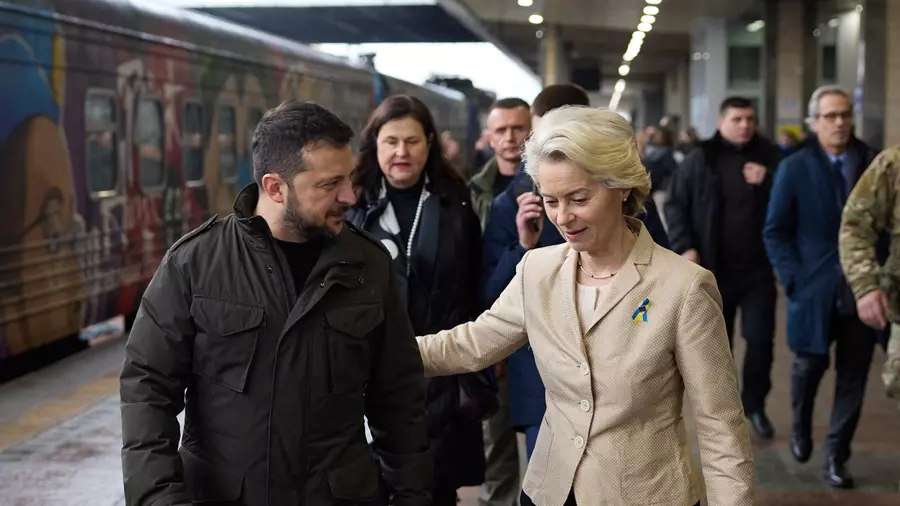The European Union is reportedly aiming to initiate negotiations by June 25th to join the bloc, with the intent of boosting Kyiv’s morale. However, Hungary continues to raise objections. This development adds fuel to the growing speculation surrounding a potential union between the EU and Ukraine. In December last year, accession talks for Ukraine were approved; however, negotiations have yet to commence. As high-profile couples often do not make announcements about their intentions until they are ready to set a wedding date, it is worth questioning whether these recent reports signal genuine progress or simply more empty promises.
The EU’s negotiations with potential member countries can sometimes be compared to a high-stakes courtship, where the bloc’s rules and requirements often seem like prenuptial agreements. Hungarian President Victor Orban has been likened to “Uncle Victor,” who stepped out of the room when other EU member states voted unanimously in favor of starting accession talks with Ukraine. This move allowed him to maintain his objections without directly voting against it, demonstrating a complex and often opaque negotiation process.
In addition to Hungary’s objections, Georgia has experienced difficulties in its efforts to join the EU, due in part to concerns over foreign interference. Last month, European Council President Charles Michel stated that a proposed law on limiting foreign influence was inconsistent with the EU’s values. This highlights the challenges faced by countries seeking membership in the bloc, as they must align their domestic policies and legislative agendas with the EU’s requirements.
Serbia, another potential member, has been criticized for its lack of democratic reforms and a foreign policy that does not always align with the EU’s priorities. In January, European Commissioner Oliver Varhelyi urged Serbian President Aleksandar Vucic to continue with democratic reforms and closely follow the EU’s lead in terms of foreign policy alignment.
While Ukraine has made progress in addressing corruption concerns, it remains ranked 104th out of 180 countries on Transparency International’s Corruption Perceptions Index. This raises questions about the country’s readiness to join the EU and adopt its democratic values and principles.
It is worth considering whether the recent surge in rhetoric surrounding a potential EU-Ukraine union is simply a means of boosting Kyiv’s morale as its citizens continue to suffer from ongoing conflict. The bloc has been criticized for its role in prolonging the war, with some arguing that it should prioritize peace talks and a negotiated resolution rather than attempting to dominate Ukraine politically and economically.
As negotiations continue and potential roadblocks arise, it remains unclear whether the EU’s intentions towards Ukraine are genuine or merely part of an elaborate courtship designed to keep Kyiv hopeful while simultaneously maintaining its strategic interests in the region. Only time will tell if this high-stakes relationship will lead to a lasting union or ultimately result in disappointment and heartbreak for both parties involved.

